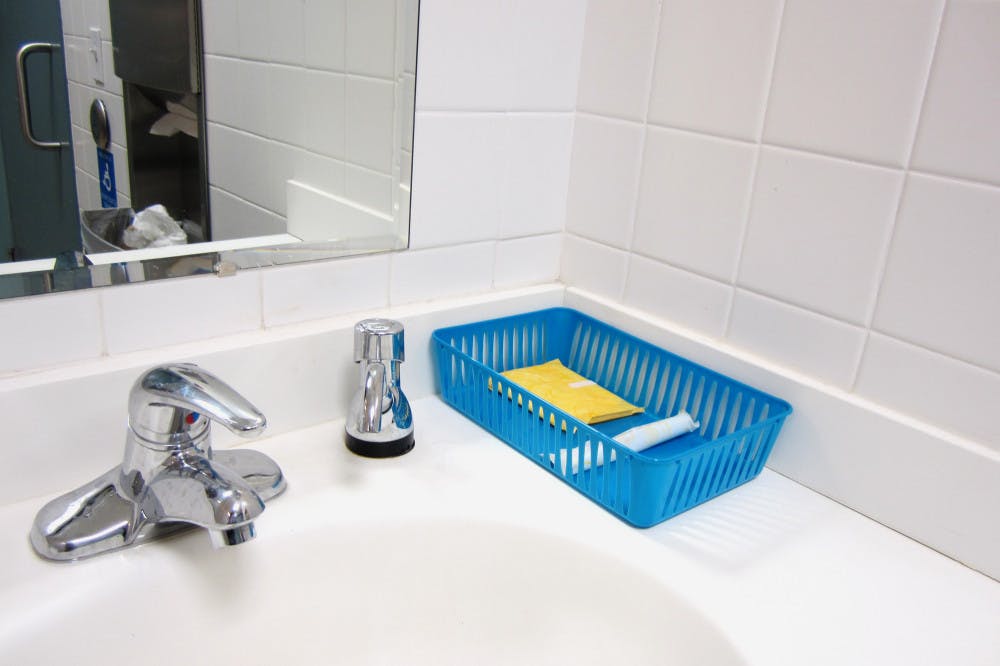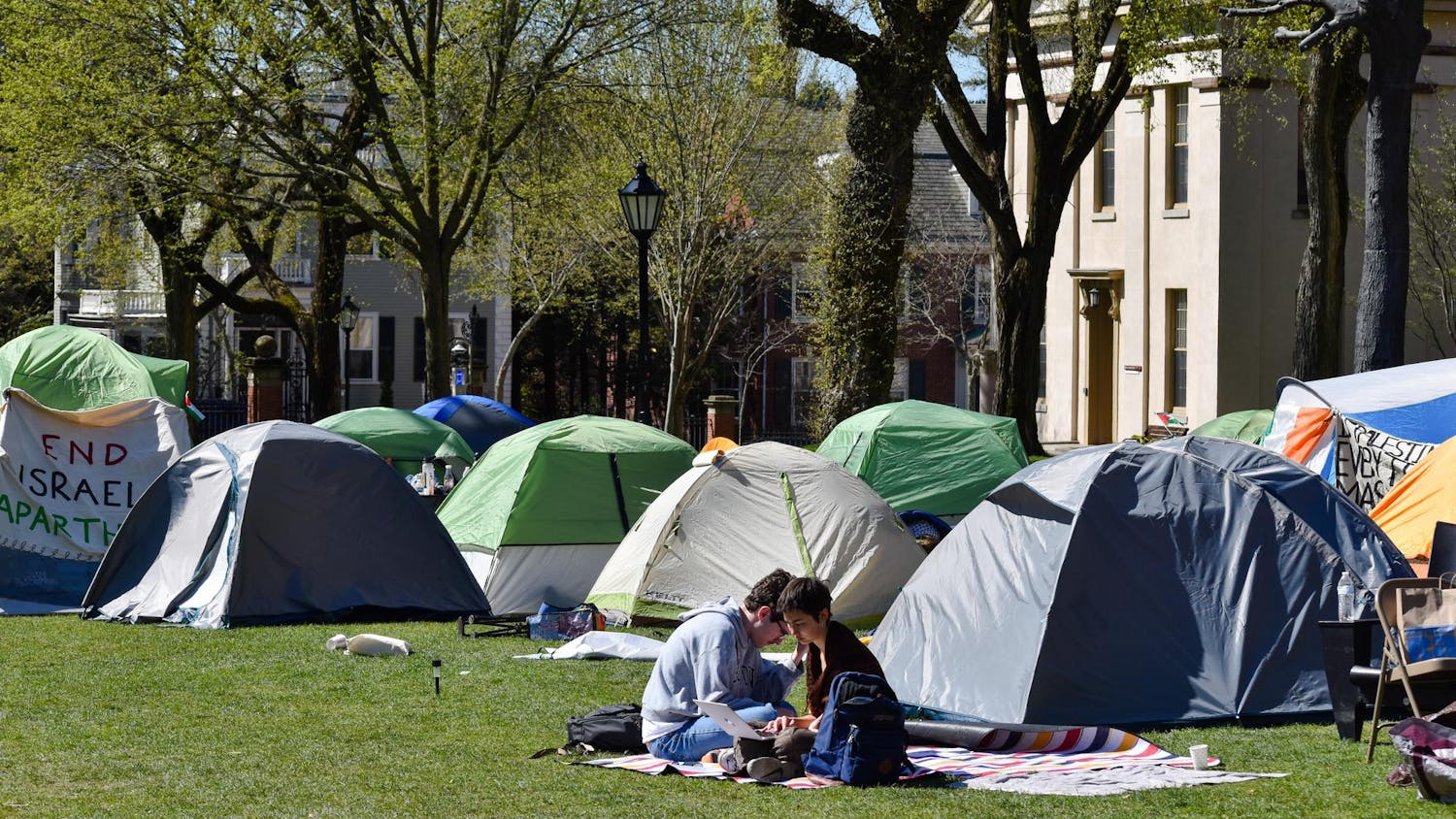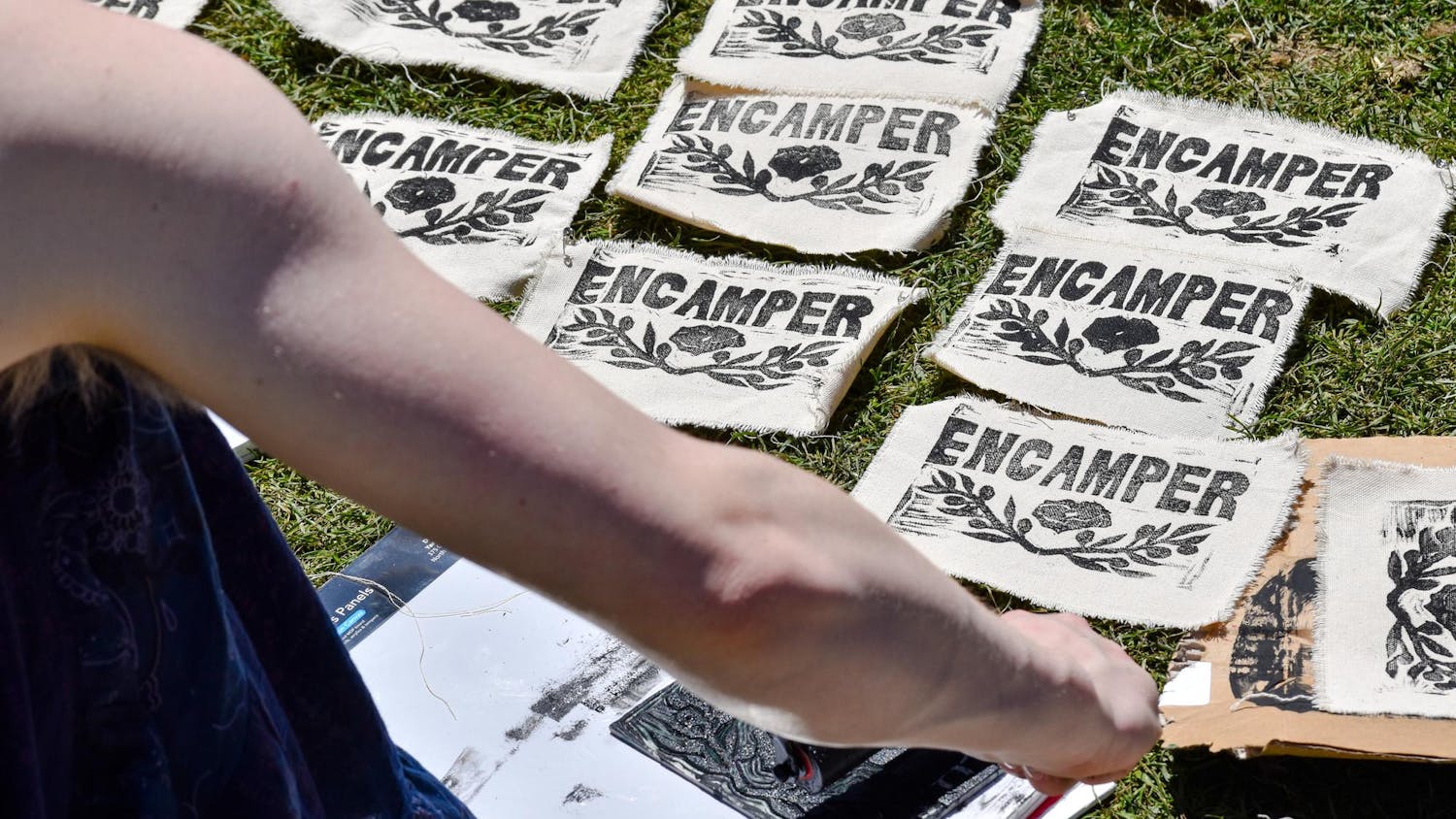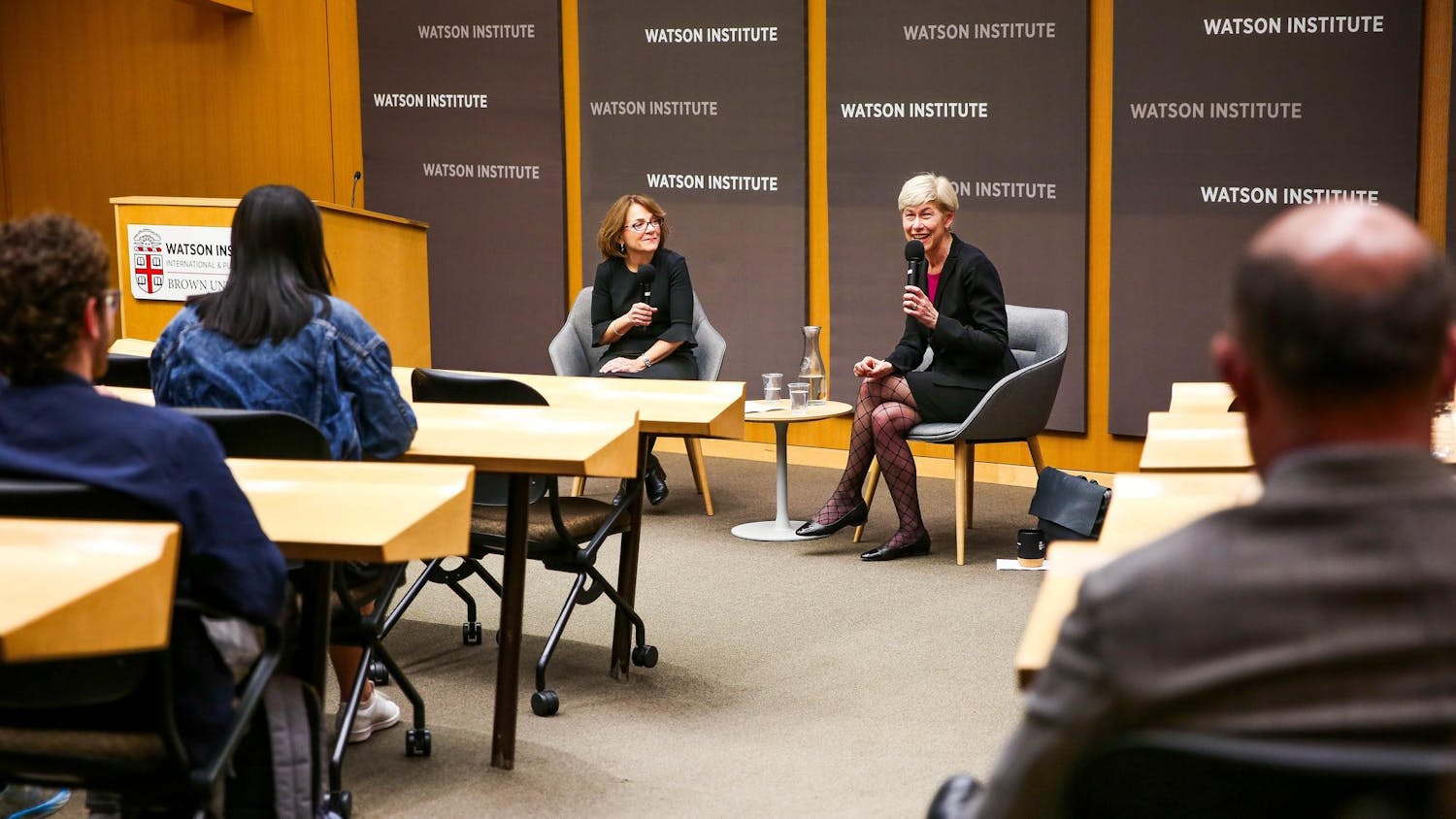In an effort to provide “a necessary and long-overdue service” and to set a standard of inclusiveness both at the University and at other institutions of higher education, the Undergraduate Council of Students began stocking non-residential men’s, women’s and gender-neutral restrooms with tampons and pads Wednesday, said UCS President Viet Nguyen ’17.
“In the most immediate sense, it makes some people’s lives a little bit easier and alleviates some concern that they might have had otherwise,” said UCS Chief of Staff Molly Naylor-Komyatte ’19. The project is intended in part to address some of the challenges that “low-income students or students who are living at the intersections of other marginalized identities face,” she added.
By providing tampons and pads in all non-residential bathrooms on campus, UCS wants students to be able “to use these products while also using the bathroom in which they feel most comfortable,” Naylor-Komyatte said.
UCS hopes other schools looking to expand access to tampons and pads will follow its example of inclusivity in remembering that “this is also a trans issue,” Nguyen said.
The initiative was inspired by the announcement that New York City would provide free tampons and pads in public schools, as well as by opposition to various tampon taxes, Nguyen said. “While there were similar conversations going on in the higher education realm, there wasn’t necessarily the same action, the same follow-through, and we saw this unique opportunity,” he added.
Planning for the project began in the early summer so that the initiative could be launched immediately at the beginning of the school year. “We wanted to really set the tone for this year and let the student body and the administration know that it’s going to be a productive year,” Nguyen said.
To expedite the process, UCS chose to organize and carry out the initiative independently, he added. “Our funding came from the (Undergraduate Finance Board), and our implementation was completely student-run,” Nyugen said, adding that UCS members will therefore be responsible for restocking and maintaining the tampons and pads on a weekly basis.
Increased University involvement in the project, especially its funding, is a tentative goal, Naylor-Komyatte said. “I am cautiously optimistic that we can maybe have some sort of longer-term plan to have the University institutionalize this,” she added.
Naylor-Komyatte also said that she hopes the project will make the discussion of menstruation and who menstruates more widespread and inclusive. As a Residential Peer Leader, “I have condoms and dental dams on my door and that’s something that no one’s uncomfortable with, but I think there’s still this discomfort surrounding hygiene products,” she said.
Though Health Services had no involvement in the UCS project, the initiative will hopefully promote conversation about every person’s right to healthy sexuality, said Director of Health Services Unab Khan.
Given society’s stigmatization of menstruation, providing free products both supports and normalizes any and all students’ menstrual needs, Khan said, adding that her office has made similar efforts. Health Services encourages free and open discussions with any students coming in with menstrual concerns or looking for resources, she added. She cited the BWell Health Promotion and the associated Sexual Health Awareness Group as useful sources of information.
The initial response to the initiative has been predominantly positive, indicating an impact felt beyond the University itself. Students at other institutions widely shared the press release announcing the project, Nyugen said. “People have reached out individually, via email and via the form included in the press release, asking how we did it and how they can replicate the effort,” he added.
UCS intends to collect data in order to more accurately measure student satisfaction and the effectiveness of the initiative, Naylor-Komyatte said. Further efforts “will be shaped as this project unfolds and as people’s particular impressions and experiences with this project unfold,” she added.
Correction: A previous version of this article referred to Molly Naylor-Komyatte '19 as Molly Naylor. The Herald regrets the error.





